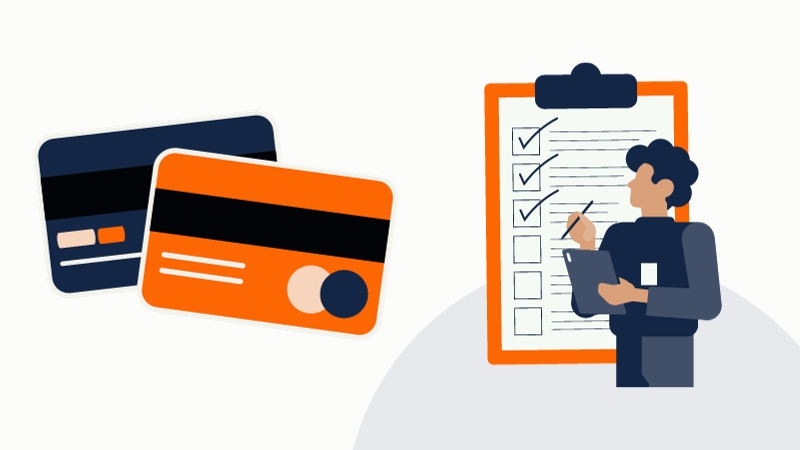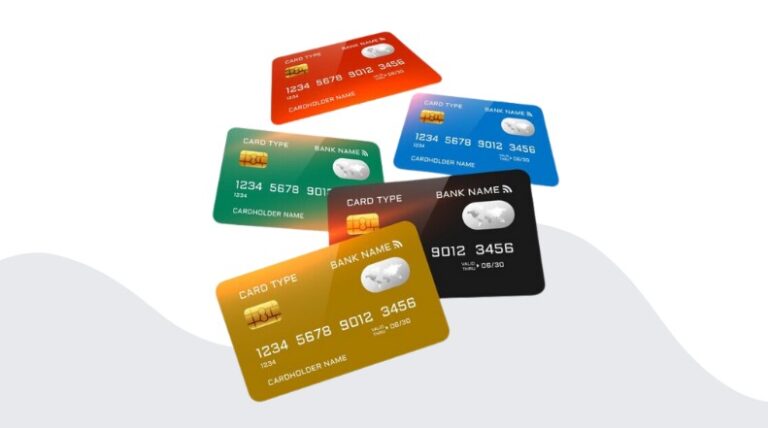Credit cards have transformed the way we manage and spend our money by offering unmatched convenience, flexibility, and rewards. With their ‘buy now, pay later’ feature, they allow us to make purchases and access credit with ease, making them a favourite for people worldwide. However, using a credit card also means borrowing money, so it’s important to track your spending and manage payments responsibly. In this blog, we’ll explore what a credit card balance is, how to check your credit card statement and balance using different methods, and why keeping an eye on it is essential for your financial well-being.
What Is Credit Card Balance?
In its simplest form, a credit card balance is the amount of money you owe to your credit card issuer. It represents the total outstanding debt on your card.
If you don’t pay off what you owe on your credit card by the end of the month, the amount left over gets added to the bill for the next month, and you have to pay extra as interest. Your credit card balance is a significant element in figuring out your credit score.
Your credit card balance includes not only the original amount you charged for purchases (also called the principal balance) but also any interest charges, fees, and other financial transactions that have been added or subtracted from the account since your last billing cycle.
Easy Ways to Check Credit Card Outstanding Balance
Now that we have talked about what a credit card balance is and its various types, it’s crucial to know how to check a credit card balance. There are multiple options for you to keep track of your credit card balance:
- Using ATMs: Many banks and credit card issuers allow you to check your credit card balance at an ATM. Simply insert your card, enter your PIN, and select the option to view your balance.
- Monthly Statements: Credit card issuers send you a monthly statement that provides a summary of your account activity, including your statement balance, recent transactions, and minimum payment due. Reviewing this statement is a good way to keep track of your balance.
- Visiting a Branch: If you require in-person assistance, you can visit your bank’s local branch and ask a bank representative to help you check your credit card balance.
- Calling Customer Service Center: Most credit card issuers provide a customer service phone number on the back of the issued card. You can call this number to inquire about your balance.
- Sending SMS: Some banks offer SMS services that allow credit card balance checks by sending a text message from your registered mobile number. By doing so, you can get a response with your current balance.
- Internet Banking: Most banks offer online banking services that allow you to log in to your account and check your credit card balance in real-time.
- Mobile App: Many credit card issuers have mobile apps that provide convenient access to your account information. You can check your balance, make payments, and manage your card through the app itself without any hassle.
How is the Credit Card balance calculated?
Understanding how your credit card balance is calculated is crucial. Your balance is dynamic and constantly changing due to your spending, payments, and the accruing of interest and fees. To help you grasp this concept, let’s break down the key components of your credit card balance –
- Principal Balance: This is the initial amount you borrowed when you made purchases using your credit card.
- Interest Charges: If you don’t pay off your full balance by the due date, your credit card issuer will charge interest on the remaining balance. Interest is typically calculated as an annual percentage rate (APR) and applied to the outstanding debt. This interest accrues daily, adding to your balance.
- Fees: Credit card issuers may charge various fees, such as annual fees, late payment fees, or foreign transaction fees. These fees also increase your balance.
- Transactions: Any additional purchases, cash advances, or other transactions on your card contribute to your balance.
- Payments: When you make payments on your credit card, they reduce your balance. However, if you only make a partial payment, your balance will still include the remaining debt.
Various Types of Credit Card Balances
- Current Balance: Your current balance is the total amount of money you owe on your credit card at the present time. It can change every day because it depends on your new purchases, the payments you make, and the interest charges added.
- Available Balance: Your available balance is the amount of credit you still have available to use. It considers your credit card limit and subtracts your current balance. Keeping an eye on your available balance is essential because it helps you avoid spending more than you’re allowed and going over your credit limit. Keeping a check on your available balance helps you avoid crossing your limit.
- Statement Balance: The statement balance is the amount of money you owe on your credit card at the end of your monthly billing cycle. It’s the number you see on your monthly credit card statement. When it comes to making payments, to avoid paying extra interest charges, this balance is the most crucial one to keep in mind. Always try to make your payment on or before the due date to avoid any extra charges (interests) on your transaction.
Why is it Important to Check Your Credit Card Balance?
Now that you know how to check your credit card balance, it’s crucial to understand why doing so is essential for your financial well-being. Let’s explore the benefits of regularly monitoring your credit card balance:
- Avoiding Overspending: Checking your credit card balance helps you keep track of your spending and stay within your budget. It’s easy to lose track of your expenses, especially if you have multiple credit cards. By knowing your balance, you can make informed spending decisions and avoid exceeding your credit limit.
- Avoiding Late Payment Fees: Your monthly credit card statement includes a minimum payment amount and due date. Failing to make at least the minimum payment by the due date can result in late payment fees, increased interest charges, and damage to your credit score. By regularly checking your balance, you can ensure that to make timely payments.
- Detecting Fraudulent Charges: Credit card fraud is a real concern. You should always keep monitoring your credit card balance, as it can help you quickly identify any unauthorised or suspicious transactions on your account. Reporting fraud promptly can prevent further unauthorised charges and protect your finances.
- Managing Debt: Understanding your credit card balance is crucial for managing your overall debt. It allows you to see the big picture and make strategic decisions regarding debt repayment. For example, you can prioritize paying off high-interest debt to save money on interest charges.
- Improving Credit Score: Your credit card usage and payment history play a significant role in your credit score. Regularly checking your credit card balance and making on-time payments positively impact your credit score, potentially leading to lower interest rates and better financial opportunities in the future.
Credit Card Balance Enquiry
The majority of credit card defaults typically stem from two primary causes:
- Financial Distress: In this situation, cardholders exhaust their credit limits due to an inability to manage their expenses. As a result, they do not happen to have the necessary funds to settle their credit card bills when they come due.
- Missed Payment Deadlines: A significant number of customers struggle to keep track of their payment due dates, resulting in late payments and associated penalties. Over time, this recurring issue can negatively affect their credit rating.
Tip: Don’t wait until your monthly statement arrives; make it a habit to check your balance regularly through the various methods we discussed.
Read More: Pre-payment penalty: What is it and how it works
Frequently Asked Questions:
Q1: What is the meaning of a credit balance refund?
A credit balance refund occurs when your credit card account has a positive balance. This can happen if you’ve overpaid your card or if you’ve received refunds or credits for returns or disputes.
Q2: What is the minimum amount due on my credit card?
The minimum amount due on your credit card is the smallest payment you must make each month to keep your account in good standing. While paying the minimum amount due helps you avoid late fees and negative credit reporting, it’s not advisable to make only the minimum payment, as it results in carrying a balance and incurring interest charges.
Q3: How long does it usually take for a credit balance refund?
The time it takes to receive a credit balance refund can vary depending on your credit card issuer and the method you choose for receiving the refund. In general, credit card issuers aim to process refunds promptly, typically within a few weeks.
Q4: What will happen if I overpay the credit card balance?
If you overpay your credit card balance, you’ll create a credit balance on your account, as mentioned earlier. There are a few things you can do though:
Request a Refund: You can contact your credit card issuer and request a refund for the credit balance. They will process the refund as a check or transfer it to your linked bank account.
Offset Future Charges: Some cardholders choose to leave the credit balance on their card to offset future purchases. This can be a convenient way to manage your spending, but you should be mindful not to overpay your card repeatedly.
Apply It to Existing Debt: If you have other outstanding balances with the same credit card issuer (e.g., on a different card or a line of credit), you may be able to apply the credit balance to those accounts.
Q5: Can I overpay the credit card bill to increase my credit card limit?
Your credit limit is determined by your credit card issuer based on various factors, including your credit history, income, and payment history. Overpaying your card may result in a credit balance, which you can request as a refund or use to offset future charges, but it won’t affect your credit limit.
This post is also available in: हिन्दी (Hindi)




